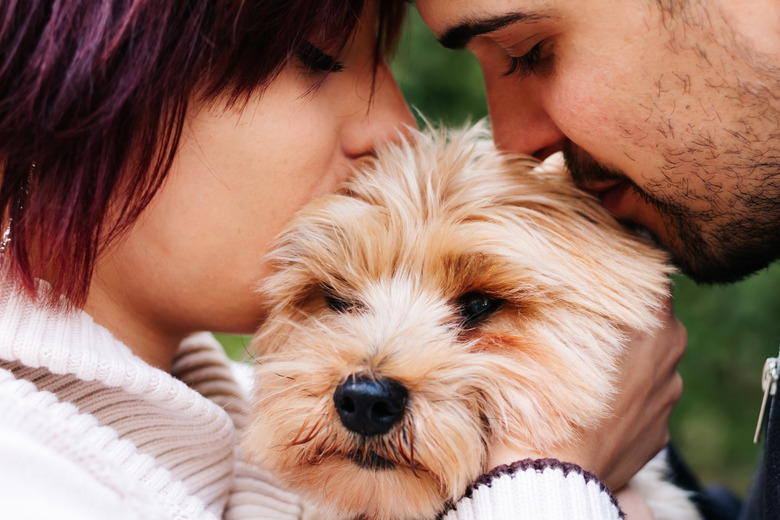How To Treat A Dog's Lick Sores
Dogs lick themselves for all kinds of reasons, though when a dog is licking her leg raw, it's time to check in with the vet. A dog licking a wound raw may cause the sore to become irritated and even infected.
Some breeds are prone to licking more than others, including golden retrievers, St. Bernards, German shepherds, and Rottweilers. Because of the thick coats on these dog types, lick sores are more likely to develop. Treating lick sores and trying to prevent them in the first place is the best way to resolve this sticky, itchy situation.
What is a lick sore?
What is a lick sore?
A lick sore is also known as a lick granuloma or acral lick dermatitis, and it develops when a dog constantly licks one of his legs, often a joint on the front limb. Too much licking in one spot can also cause a hot spot to develop, which is officially called acute moist dermatitis and is sometimes mistaken for acral lick dermatitis. The difference between the two is in the length of time they persist. Lick sores tends to hang on despite treatment, while hot spots get better quickly, often as fast as three to seven days once they're diagnosed.
Why a dog is licking a wound raw
Why a dog is licking a wound raw
As to why your dog is licking his leg raw, veterinarians say the reasons for this obsessive habit is a mix of both physical and mental components. Your dog may have a bug bite or sting that's bothering him, an infection, or an allergic reaction on the skin. He may be suffering from joint pain and is trying to relieve it with his tongue. Along with these physical ailments comes a psychological need to lick in order to ease fear, anxiety, or an obsessive-compulsive disorder.
If you're wondering whether a dog licking a wound is good or bad, you're correct to note there are two sides to the debate. Wound licking does have some benefits thanks to the contents of a dog's saliva. Not only does a dog's tongue actually remove dirt and debris from wounds but canine saliva has anti-bacterial and anti-microbial properties. However, when it comes to treating a lick sore, hot spot, or other dermal abrasion, stick to actual vet products for the best remedies because too much licking can worsen a wound and can even cause self-mutilation if it gets very bad.
Treating lick sores in dogs
Treating lick sores in dogs
In order to help soothe lick sores in a dog, the underlying triggers have to be identified. Treating the inflamed area with topical or oral drugs, such as corticosteroids, can clear redness and irritation, and antibiotics may be prescribed if there are secondary skin infections. If the cause is anxiety or a type of compulsion or fear that your pup has developed, psychopharmacologic medications may be suggested.
Sometimes, boredom is behind a case of excessive licking, so the treatment in this case would be more attention, extra walks, and a chance to engage with playthings that challenge your dog's mind. Examples might include toys that squeak, skitter across the floor, light up when bounced, or contain a hidden treat, like a piece of bacon or gob of peanut butter.
Preventing raw lick sores
Preventing raw lick sores
Is it OK for a dog to lick wounds? Frankly, getting a dog to stop licking is ideal, but it's tricky since most owners can't supervise their pet all day. To limit your dog's access to inflamed areas, like lick sores, you might consider placing an old sock over the paw or leg or dressing your pup in a shirt that covers the area but still allows some air to circulate around the wound. The best way is to have your dog wear a collar when they've had surgery or another procedure. The cone can block access to the sore and then aid the healing process.
